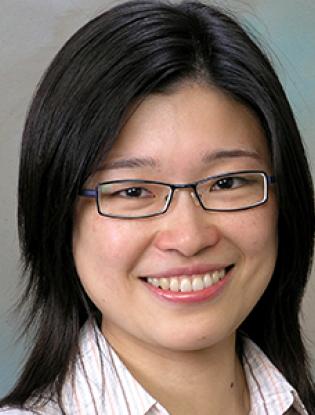Ya-Huei Kuo, Ph.D.

Duarte Cancer Center
Duarte, CA 91010
2001 - University of Connecticut, Storrs, Connecticut, Ph.D. in Cell Biology
1995 - National Taiwan University, Taipei, B.S. in Zoology
2002 to 2007 - Post-doctoral fellow, Program in Gene Function and Expression, University of Massachusetts Medical School, Worcester, MA
2014 to Present - Associate Professor, Department of Hematologic Malignancies Translational Science, Beckman Research Institute of City of Hope, Duarte, CA
2008 to 2014 - Assistant Professor, Division of Hematopoietic Stem Cell and Leukemia Research, Beckman Research Institute of City of Hope, Duarte, CA
1999 - Teaching Assistant, Department of Molecular and Cell Biology, University of Connecticut, Storrs, CN
1995 - Research Assistant, Hepatitis Research Center, National Taiwan University School of Medicine, Taipei, Taiwan
1995 - Research Intern, Institute of Molecular and Cellular Biology, National Taiwan University, Taipei, Taiwan
Molecular Genetics of Hematopoietic Stem Cells and Leukemia Stem Cells
Acute myeloid leukemia (AML) is the most common type of leukemia in adults with approximately 20,000 new cases and 10,000 deaths each year in the United States. Despite considerable improvement of survival rates for patients with leukemia over the past 50 years, the overall five-year relative survival rate for AML patients is only approximately 20 percent.
Leukemia stem cells (LSCs) are now recognized as the critical “seeds” of leukemia, and represent a fundamental challenge thought to underlie poor outcome due to their relative resistance to standard chemotherapy. Our long-term goal is to elucidate the molecular mechanism(s) regulating the maintenance of LSCs, to understand how they differ from normal hematopoietic stem cells, and to develop novel LSC-targeted therapeutics. Using a genetic mouse model of a common chromosome aberration found in AML patients, known as inv(16), we have shown that leukemia arises as a result of a multi-step transformation process involving mutations that disrupt hematopoietic differentiation, and those that deregulate proliferation and self-renewal programs.
Our current research efforts are directed towards understanding the molecular pathways and functional mediators regulating normal hematopoiesis as well as those underlying leukemogenesis using a combination of genetics, genomics, biochemistry, proteomics, molecular biology and cellular biology approaches. We use defined genetic mouse models as an experimental system to identify molecular pathways and targets, and primary cells from AML patients to validate the findings and perform further translational and preclinical studies. We believe that a comprehensive understanding of oncogenic mechanisms will enable rational design and selection of improved cancer treatments.
2012 to 2016 - American Cancer Society Research Scholar Grant Award
2010 to 2012 - Concern Foundation CONquer canCER Now Award
2009 to 2012 - The V Foundation for Cancer Research, V Scholar Award
2009 - Lauri Strauss Leukemia Foundation Discovery Research Grant Award
2009 to 2011 - Margaret E. Early Medical Research Award
2008 to 2011 - STOP CANCER Research Career Development Award
2004 to 2007 - Individual Post-doctoral Fellowship, Ruth L. Kirschstein National Research Service Award, National Cancer Institute, National Institutes of Health
2003 to 2004 - Post-doctoral Fellowship, Our Danny Cancer Fund, Cancer Center, University of Massachusetts Medical School
American Association for Cancer Research
American Society of Hematology
American Society for Cell Biology